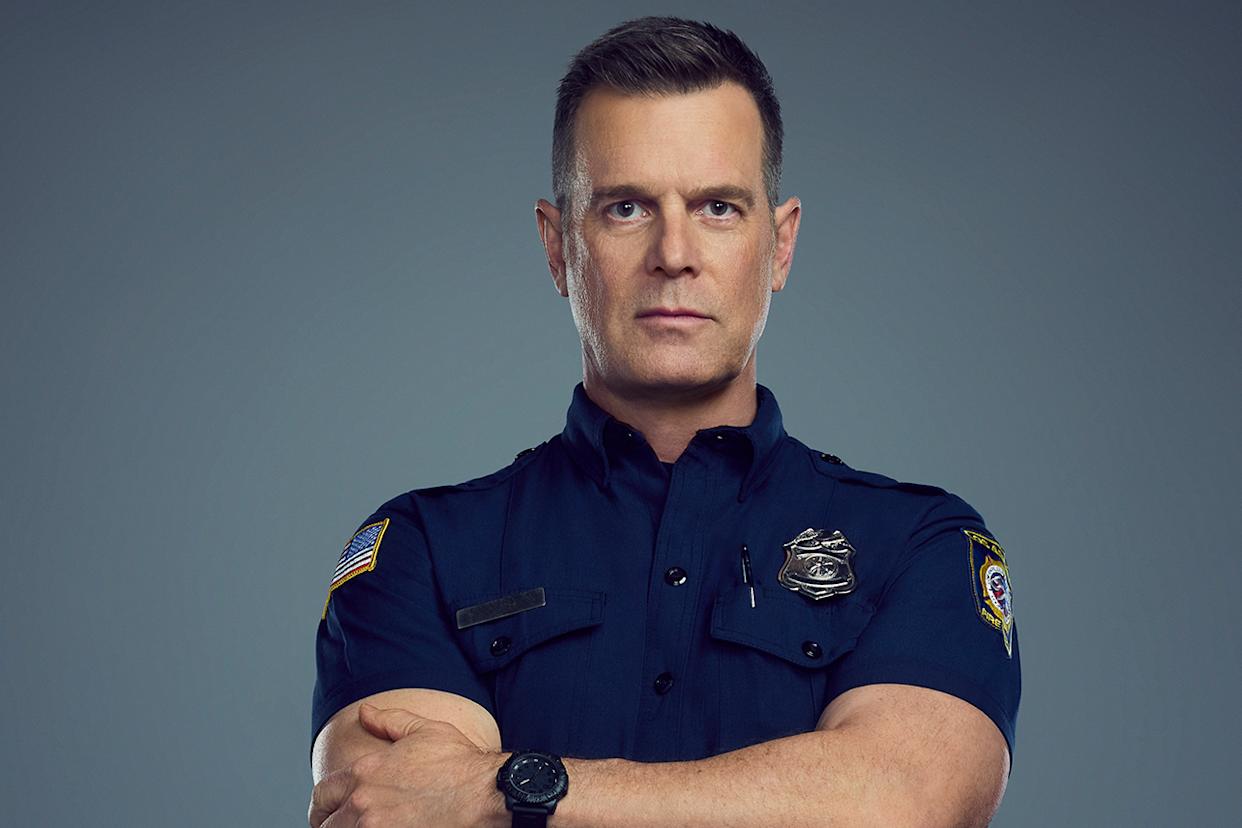In a heart-wrenching turn of events, 911 has bid farewell to one of its core characters after eight seasons. In the April 17th episode titled “Lab Rats,” Captain Bobby Nash, portrayed by Peter Krause, sacrifices his life to save his crew. His death comes after he and his fellow firefighters battled a deadly virus.
In his final moments, Bobby shares a poignant goodbye with his wife, LAPD Sergeant Athena Grant-Nash (Angela Bassett), before succumbing to the virus. This marks a major shift in the show’s narrative, as the character’s death has profound implications for the series moving forward.
Peter Krause Supports Bobby Nash’s Sacrifice, Highlighting Character’s Impact on 911 Narrative
Peter Krause addressed the difficult decision in a statement, acknowledging that longtime fans of 911 would feel the impact of his character’s death. However, he supported the choice made by the show’s creators, particularly co-creator and showrunner Tim Minear.
Krause emphasized that Bobby Nash’s death was not only a creative risk but also a fitting end to a character who embodied sacrifice. The show’s creators explained that Bobby’s death would deeply affect the other characters, making it a crucial narrative decision for the series’ progression.

Krause reflected on Bobby’s role as a firefighter, noting that the character was built to embody sacrifice, mirroring the real-life risks that first responders take every day. In his statement, Krause praised the character’s story arc for highlighting themes of healing, forgiveness, and grace.
He also expressed gratitude for having had the opportunity to play a character that honored the bravery of first responders. The show had portrayed Bobby’s growth over the years, including his healing journey and his deepening relationship with Athena, making his ultimate sacrifice all the more impactful.
Krause Expresses Deep Gratitude to 911 Team, Castmates, and Crew in Farewell Message
In his farewell message, Krause took the time to thank the team behind 911 for their support throughout his tenure on the show. He acknowledged the contributions of key figures, including producers Dana Walden, Ryan Murphy, Brad Falchuk, and Tim Minear.
Krause also expressed deep appreciation for the show’s technical advisor, Chief Mike Bowman, and real-life firefighters who helped bring authenticity to his portrayal of Captain Bobby Nash. His heartfelt message underscored the collaborative effort that went into making the show, with Krause praising the dedication and professionalism of the entire 911 team.
As Krause prepares to leave the show, he expressed a deep sense of gratitude to his co-stars and colleagues. He paid special tribute to his on-screen partner, Angela Bassett, noting her strength and the bond they shared. Krause also bid farewell to the ensemble cast, including Aisha Hinds, Kenneth Choi, Oliver Stark, Ryan Guzman, and Anirudh Pisharody, affectionately calling them his “beloved and unruly children of the 118.”
He thanked the show’s directors, writers, and guest stars, acknowledging the challenging yet rewarding nature of creating the series. Krause concluded his message with a heartfelt goodbye to his 911 family, marking the end of a significant chapter in both his career and the show’s history.


